Study Medicine at The Royal College of Surgeons in Dublin
RCSI is Ireland’s largest medical school and one of the most international medical schools in the World.
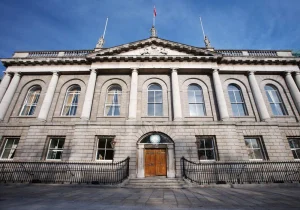
Overview
The medical course has a strong emphasis on small group teaching within the Curriculum. Small group teaching involves seminars with tutors in groups of ten and bedside teaching with students in groups of six. Simulation scenarios with the most modern simulators occur in groups of one tutor per three students in the senior clinical years. The programme provides continuous appraisal, mentoring and case presentations on an individual basis along with frequent reviews of your clinical progress with senior clinicians in the clinical years.
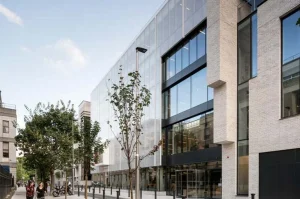
About the University
For over 200 years RCSI has played a major role in medical education and training in Ireland. Founded in 1784 to train surgeons, today the College provides extensive education and training in the healthcare professions at undergraduate and postgraduate level. It is situated right in the heart of Dublin’s city centre and offers unparalleled amenities and state-of-the-art facilities.
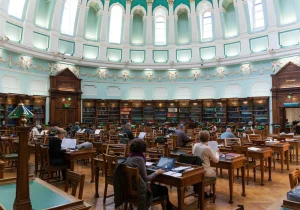
Why Choose the Royal College of Surgeons?
- Times World University Rankings places RCSI in the top 250 institutions worldwide and joint first place in the Republic of Ireland
- Ireland’s largest medical school and one of the most international medical schools in the world
- Over 200 clinical consultants on their teaching staff
- College is investing €80 million in a new Academic and Education Building which will be located at the city centre campus
Course Details
Foundation Year (FY1 & FY2)
The Foundation Year extends over the first two semesters of the six year programme (starting in September and extending until May) and provides students with a solid grounding in the biomedical sciences as well as providing them with the necessary IT skills to operate effectively within the College’s Virtual Learning Environment (VLE). The course is delivered as a series of stand-alone and integrated modules with modularised assessment. The Foundation Year programme is structured as follows:
| Foundation Year Semester 1 |
Foundation Year Semester 2 |
| Introduction to Medical Physics |
Human Systems II |
| Pharmaceutical & Medicinal Chemistry |
Professionalism in the Health Sciences |
| Introduction to Human Biology |
Introduction to Disease, Diagnostics & Therapeutics |
| Human Systems I |
Biomedical Laboratory Sciences |
| Professionalism in the Health Sciences |
Medicinal & Pharmaceutical Chemistry II |
| Biomedical Laboratory Sciences |
|
Junior Cycle (JC1 & JC2 & JC3)
The Junior Cycle extends over three semesters from September of the first medical year to December of the second medical year. The course is delivered as systems based modules with modularised assessment. The Junior Cycle comprises 12 modules over three semesters and is structured as follows:
| Junior Cycle Semester 1 |
Junior Cycle Semester 2 |
Junior Cycle Semester 3 |
| Fundamentals of Biomedicine (1) |
Fundamentals of Biomedicine (2) |
Molecular Medicine (MM) |
| Cardiovascular, Respiratory & Upper Limb (CVR-UL) |
Gastrointestinal & Hepatology (GI/HEP) |
Neuroscience (NS) |
| Introduction to Clinical Practice 1 (ICP 1) |
Renal, Endocrine, Genitourinary & Breast (REGUB) |
Evidence Based Health/Population Health and Epidemiology (EBH/PHE) |
|
Health Behaviour & Patient Safety (HBPS) |
Introduction to Clinical Practice 2 (ICP 2) |
|
Introduction to Clinical Practice 1 (ICP 1) |
|
Intermediate Cycle (JC1 & JC2 & JC3)
The Intermediate Cycle extends over three semesters from January of the second medical year to May of the third medical year. The course is delivered as systems based modules with modularised assessment and is structured as follows:
| Intermediate Cycle Semester 1 |
Intermediate Cycle Semester 2 |
Intermediate Cycle Semester 3 |
| Foundations in Microbiology and Immunology |
Gastrointestinal & Hepatology |
Musculoskeletal 1 (MSK) |
| Cardiorespiratory and Respiratory |
Renal, Endocrine, Genitourinary and Breast |
Musculoskeletal 2 (MSK) |
| Fundamentals of Pathology |
Haematolymphoid and Tropical Medicine (HTM) |
Student Selected Component (SSC) |
|
|
Medicine/Surgery (Clinical Team Attachments) |
Senior Cycle (SC1 & SC2)
The Senior Cycle is delivered over the final 2 years. During the first year, students are attached on a rotational basis for 7 weeks to Obstetrics and Gynaecology, Medicine and Surgery, Family Medicine, Psychiatry and Neonatal Paediatrics. During the final year, students are attached to Medicine and Surgery disciplines at local, national and international hospitals. Of particular interest is the sub internship programme. This gives final year students the opportunity to function as a member of a clinical team in preparation for internship following graduation.
| Senior Cycle Rotations |
| Medicine and Surgery |
| Medicine and Surgery of Childhood |
| Obstetrics |
| Neonatal Medicine |
| Psychiatry |
| Family Practice |
| Ophthalmology |
| Ear, Nose and Throat (ENT) |
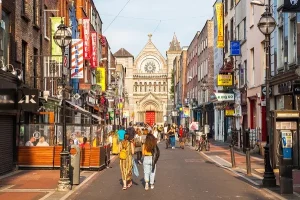
Student Life
The campus is located in the heart of Dublin City Centre. The Irish capital is a vibrant, beautiful city, that’s always pulsing with energy, and always has something going on. As college students, nothing is more important than heading out, meeting other students, and having a great time, and there is no better place for a session than Dublin. With an abundance of nightclubs in the City Centre, there is something for all. In addition, there are numerous societies and sports facilities to enjoy throughout your academic career.
Accommodation
RSCI offers a wide range of comfortable residential halls. These are Mercer Court and RSCI New Mill. RSCI also runs a long-term partnership with the Aungier Street Student Accommodation. Off-campus housing options are also available to you to best suit your lifestyle and financial background.
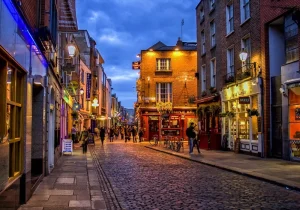
Visa
Like most other countries, Ireland requires candidates from many non-EU countries to have a visa to come and study in Ireland. The student immigration process is divided into two categories, based on whether you are applying for a degree programme offered by a higher education institution or you intend to pursue an English-language or non-degree course. Educom will be able to assist in your visa application process.
Fees & Funding
| RCSI HIGHER DEGREE |
EU FEES IN EURO (€) |
NON EU FEES IN EURO (€) |
| PhD Full-time |
6,550 |
13,100 |
| PhD Part-time (minimum five-year registration) |
4,370 |
8,740 |
| MD, MCh, MAO Full-time |
4,340 |
12,060 |
| MD, MCh, MAO Part-time |
2,170 |
6,030 |
| MSc Full-time |
6,550 |
13,100 |
| MD, MCh, MAO Part-time |
4,370 |
8,740 |




